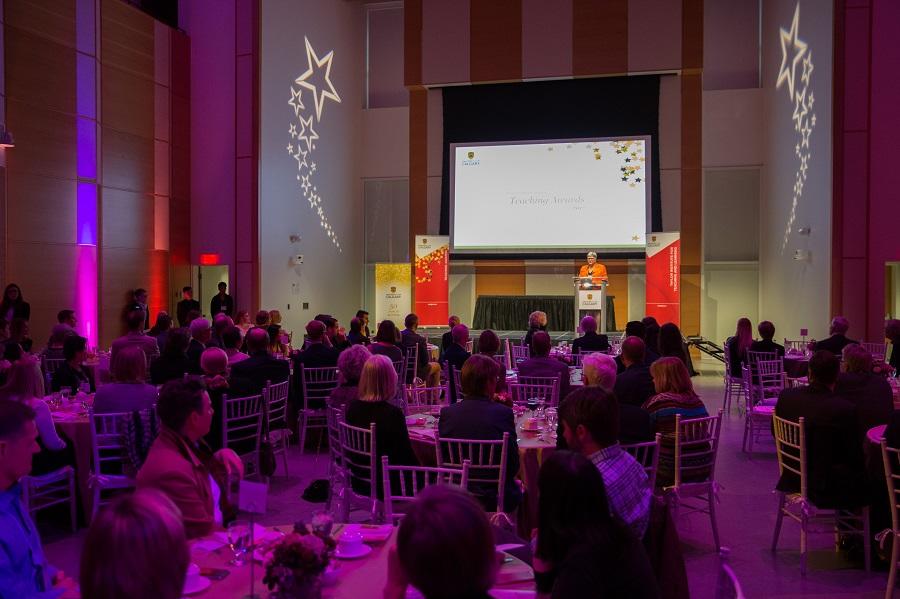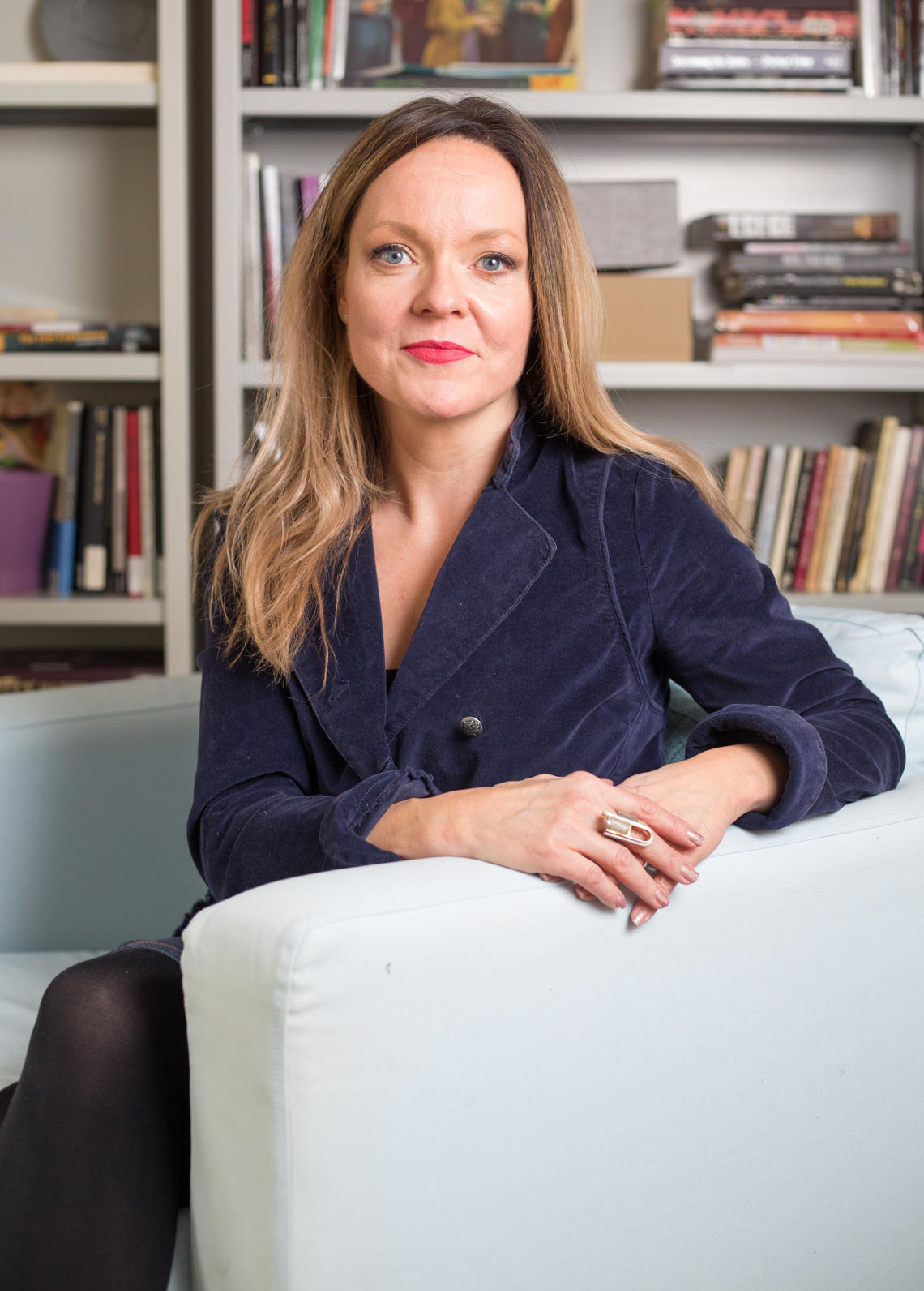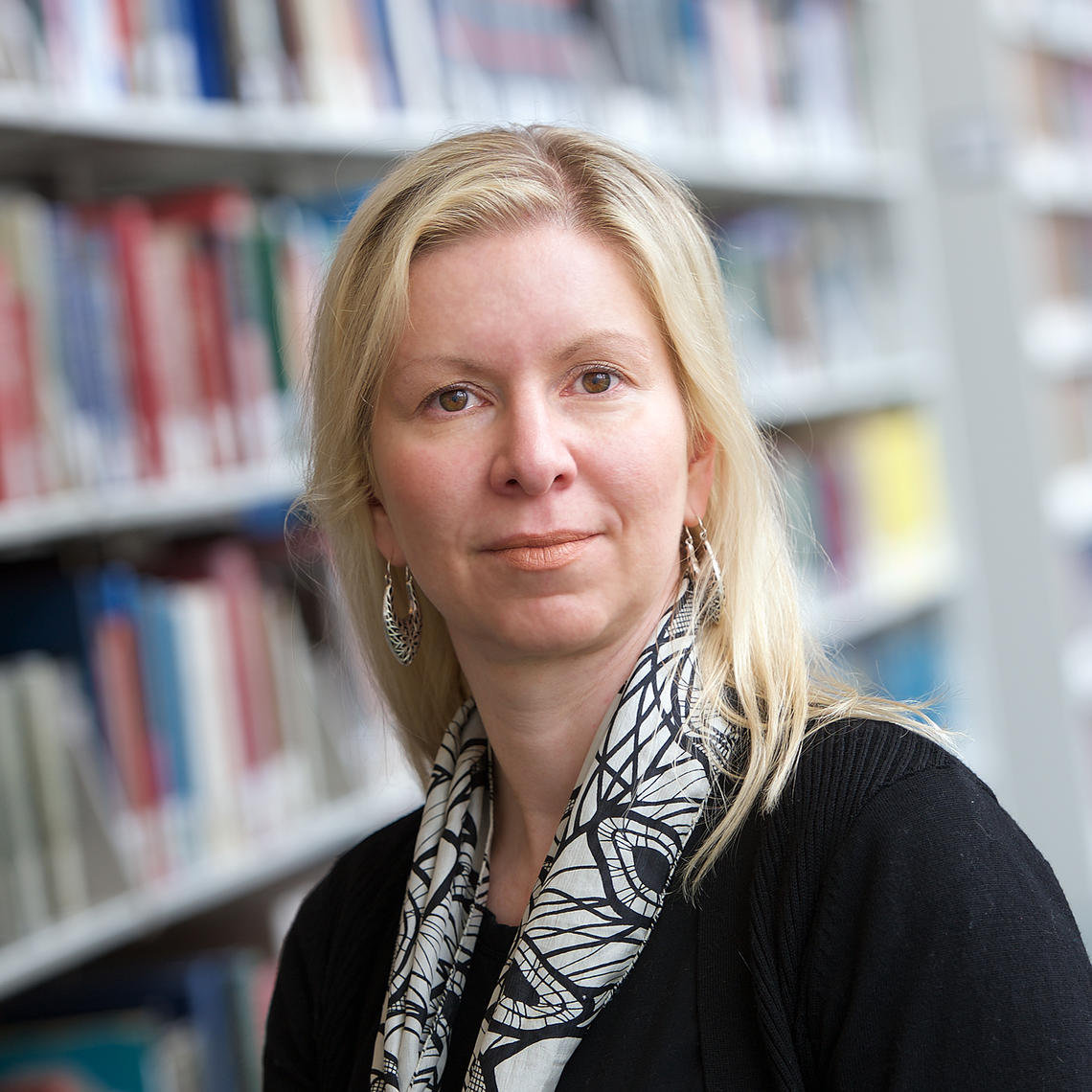
Provost Dru Marshall speaks to the audience at the 2017 University of Calgary Teaching Awards.
University of Calgary
May 10, 2019

Provost Dru Marshall speaks to the audience at the 2017 University of Calgary Teaching Awards.
University of Calgary
The University of Calgary Teaching Awards recognize teaching excellence by individuals and groups in diverse learning contexts. A teaching award is a distinguished honour; recipients are presented with their awards at a high-profile Celebration of Teaching hosted by the provost, and their names are added to a wall of honour in the Taylor Institute for Teaching and Learning. Students, faculty and staff are encouraged to nominate individuals and groups who make outstanding contributions to enriching the quality and breadth of learning.
Reflections on teaching practice
Even the most meticulously planned classes can be changed by provocative questions, moments of inspiration or even, on some occasions, technology-related hiccups. For recent University of Calgary Teaching Award recipients Dr. Lee Carruthers, PhD, associate professor in the Department of Communication, Media and Film, and Marina Fischer, collection specialist in the Nickle Galleries, this element of spontaneity is integral to the meaning of teaching.
Dr. Carruthers, who received the 2017 award for full-time academic staff, uses her area of expertise in film to foreground the always-changing nature of learning.
“I’m always going to circle back to this essential commitment I have to working with film images and moving images in particular,” she says. “For me, it’s a deep-seated and long-held philosophy, which is itself a kind of pedagogy. I like that moving images are a bit slippery … you know, that they’re moving. And I like thinking about that as a way of doing pedagogy as well — the sense that you can’t know in advance, that something’s always sort of changing dynamically. I think it keeps us all on our toes a little bit.”
Fischer, who won the 2018 award for continuing and professional education, identifies a perpetually developing process in her own self-reflection. She became especially aware of this process while writing her teaching philosophy, one of the key required parts of a teaching award nomination package.
“I had already written a teaching philosophy statement a few years ago, and was confident that I would be able to build on it, and that it would be effortless,” she remembers. “I was very wrong. It was shocking to me to see how much I have changed, and how much my beliefs and my teaching have changed. And then I realized that continuous critical self-reflection is the key. It needs to be a lifelong practice of reflecting on what, why and how I teach. And by continuously reflecting on personal experiences, both as an educator and as a student, I get to see clearly what involves effective teaching and effective learning, and then strive to make meaning from these understandings.”

Lee Carruthers, recipient of the 2017 award for full-time academic staff
Jessica Snow, Taylor Institute for Teaching and Learning
Submitting a nomination package for the University of Calgary Teaching Awards
Carruthers’ experience of preparing a nomination package presented its own unique and unforeseen challenges, not least of which came in the form of a nasty flu.
“I don’t mean just a little cold; I was actually stuck in bed for two weeks,” she says. “It was crazy. So it was a feverish process.”
She believes her feverish process would have been much more daunting if not for the support offered by community members in her department and at the Taylor Institute for Teaching and Learning.
“I had some really great help from people,” she points out. “I think the mentorship offered by past recipients is invaluable. I think that’s part of the ‘pay it forward’ ethos. I think the idea of a community of scholars who are working on passing along this stuff is really incredibly valuable, and probably one of the aspects of the University of Calgary I’m proudest of. When I think about what it’s like to work at this university, there are really astonishingly good things happening at the levels of research and facilities and those kinds of opportunities; but this focus on teaching and on the excellence of teaching is truly distinctive.”
In addition to taking advantage of available support systems, Fischer offers simple advice for those who want to submit their own nomination packages: “Make sure you start early. This is truly a key.”
The hard work paid off for both Carruthers and Fischer, who cite their awards as important landmarks in their careers.
“It felt good to get the award,” Carruthers says. “It consolidated my sense of what I was doing, and I think that sense has in many ways made it, perhaps not easier, but I can cut to the chase more clearly, because I’m aware of what I’m doing when I build a course now.”
Fischer says, “It is a true honour to receive a University of Calgary Teaching Award. I am earnestly grateful for the recognition I have received for my work, and to my department and the people I work with. It is a defining moment in my teaching career.”
Information about the University of Calgary Teaching Awards
For more information, and to submit your own nomination package for the 2019 University of Calgary Teaching Awards, visit this website.

Marina Fischer, recipient of the 2018 award for continuing and professional education.
Dave Brown, University of Calgary